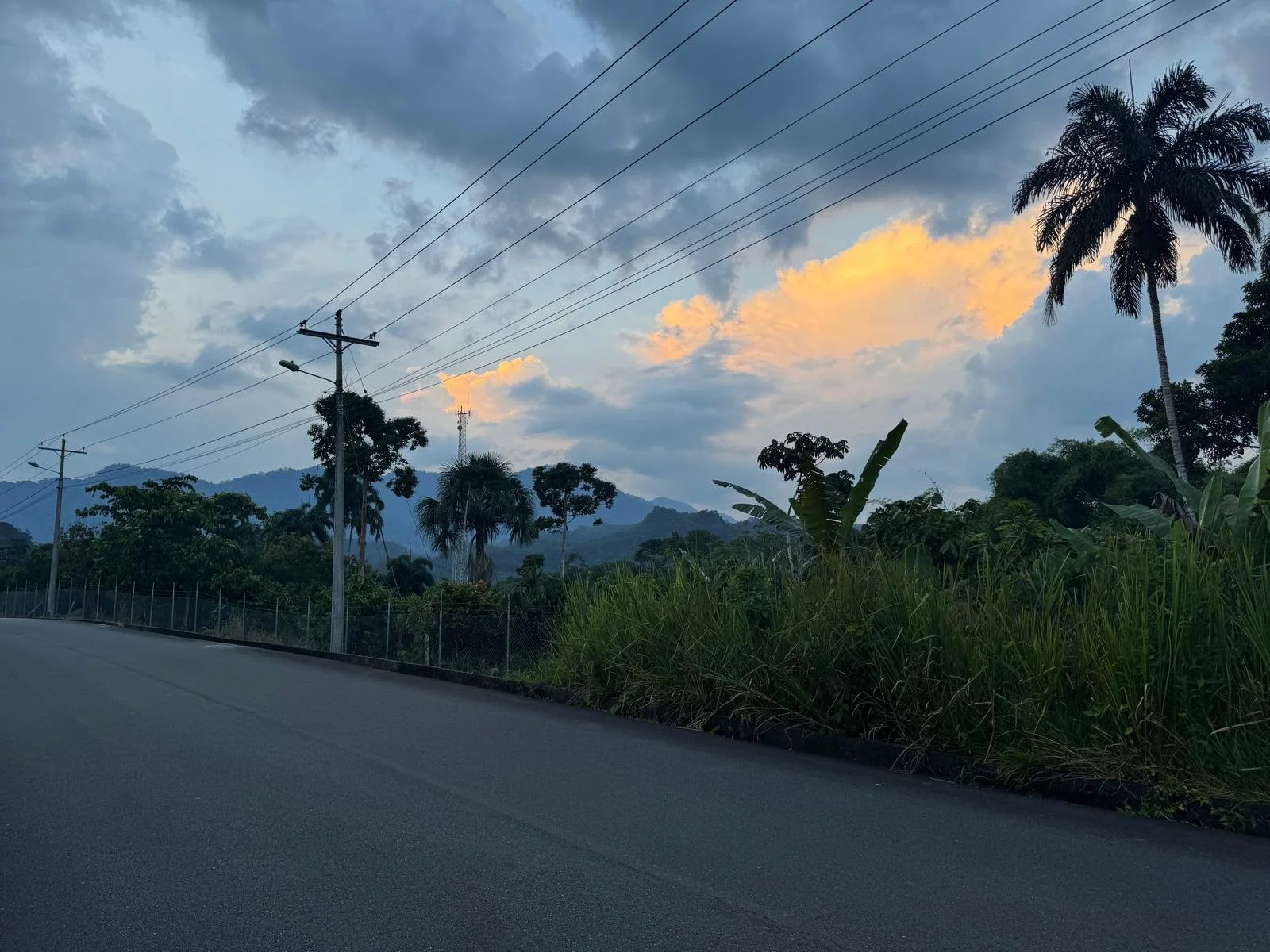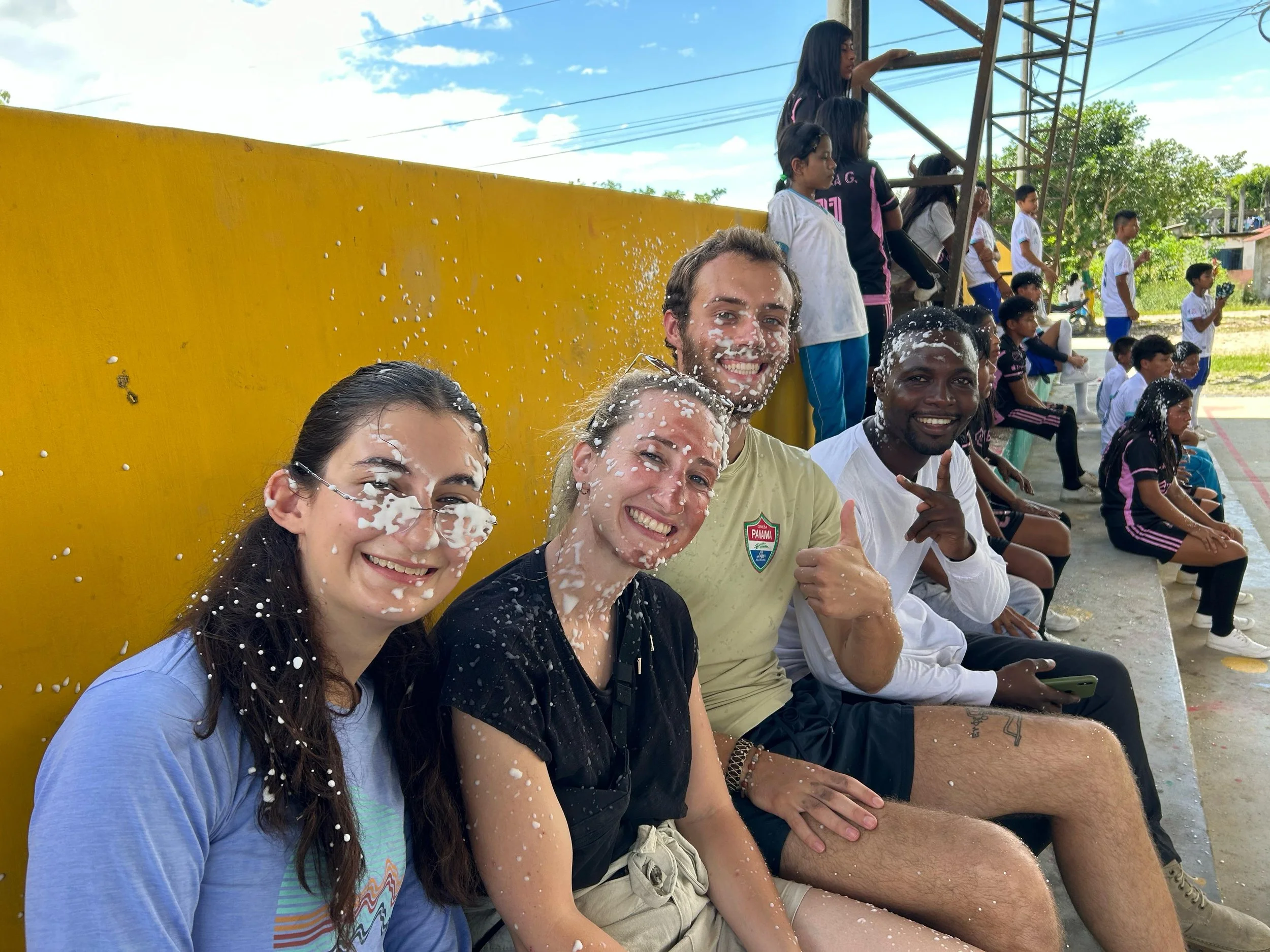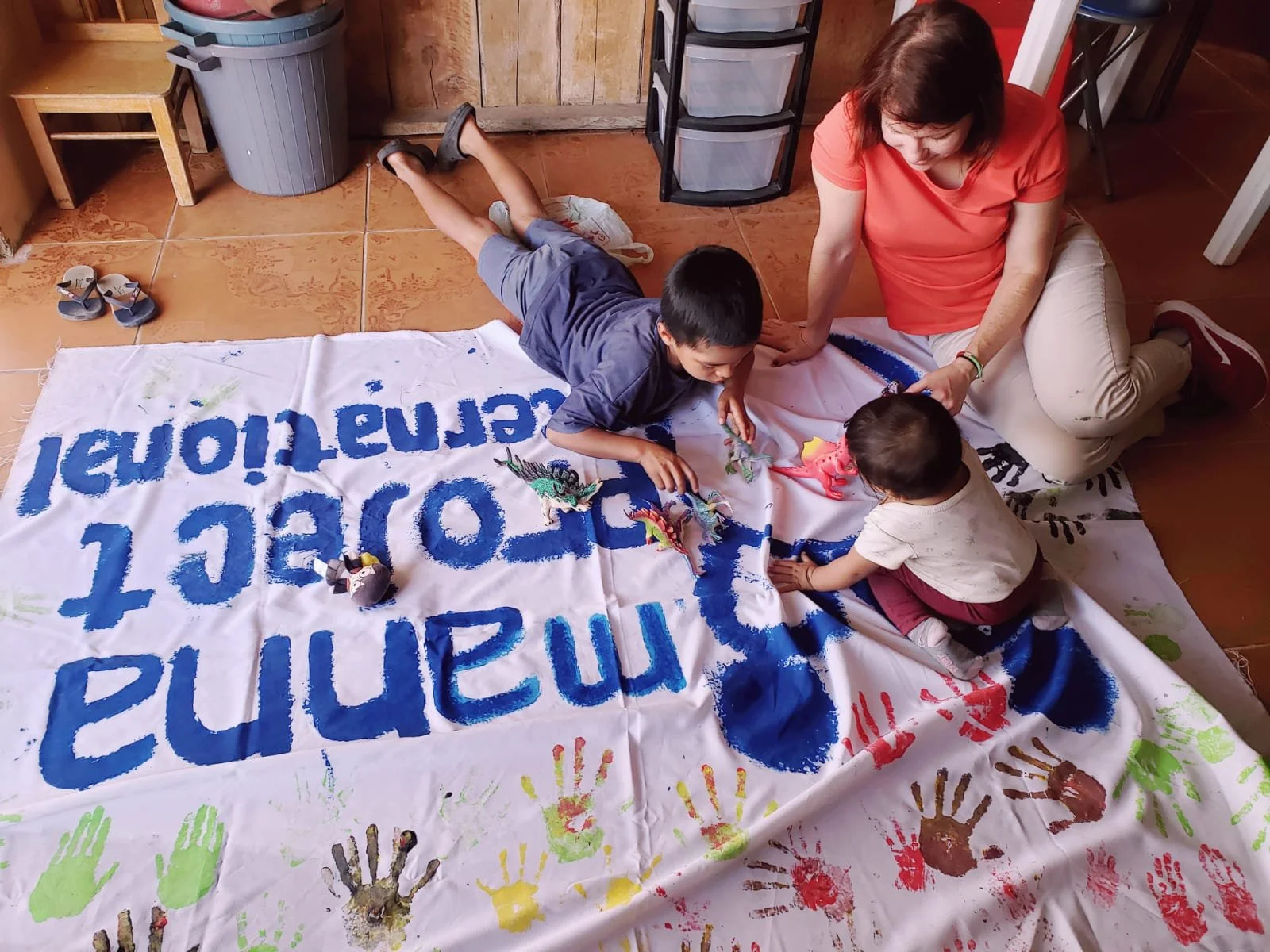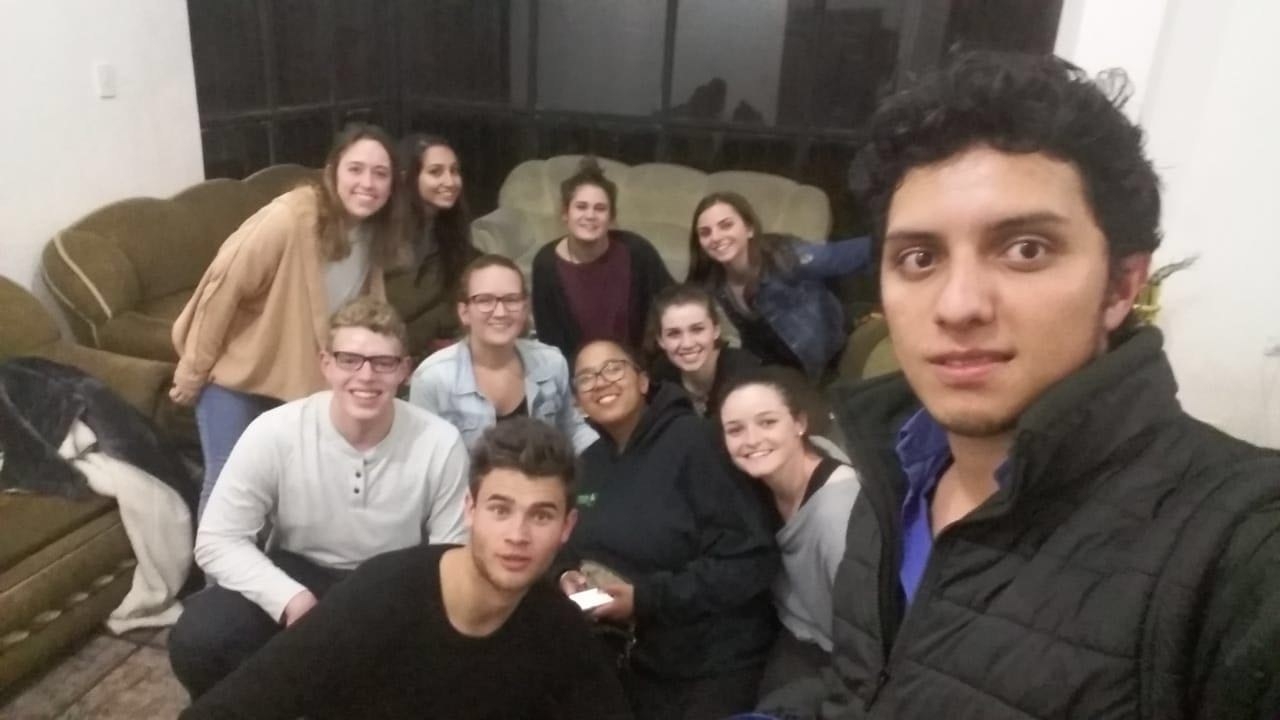I left Chicago O’Hare to travel to Ecuador feeling extremely excited, but also with the knowledge that I would be taking each and every part of my trip as it came. A month before the trip, I had no inclination that I would be flying down to South America; I was initially accepted into the Manna Project International summer intern program in Nicaragua, but a series of violent protests sparked by pension law changes tossed a wrench into my plans. Manna operates two sites, one in Nicaragua and one in Ecuador; when it was announced that the Nicaragua site would be canceled for the first session, I worked with the Manna staff and my parents to shift my plans for Ecuador.
I wanted to work with Manna in any capacity because it offered several facets that aligned with my academic and personal passions. Most importantly, I am very interested in international community development, having studied it in courses at Vanderbilt such as Latin American Economic Development. Manna operates an effective approach to international community development by partnering with local organizations to provide a holistic development approach to community members. International development can be a difficult task laden with problematic approaches that resemble voluntourism, or the white-savior complex; Manna’s programs start by listening and getting to know the communities they serve, then aligning resources to meet the demonstrated needs. Manna offers the chance to have my feet on the ground, engaging and serving communities in Ecuador, while at the same time learning about a successful international development model.
Since arriving in Ecuador and experiencing the first week of service, I have already had done things very differently than my normal modus operandi back home. One big difference for me: riding the bus. Ecuador has a well-utilized bus system, and I am still nailing down the names of the different buses (Cia Azblan, Libertadores, Los Chillos, Amaguaña, etc.) and the different routes (Conocoto, Rumiloma, La Salle, El Triángulo). I learned that on each bus, rather than having an automated system like buses I am accustomed to in the U.S. there is an “ayudante”, a man or woman who comes up to each passenger and asks for the bus fare. The fare is typically anywhere from 25-35 cents, so I now carry much more change in coins than I ever have. An interesting facet of Ecuadorian bus culture that I have begun to practice myself: although Ecuadorians tend to be very welcoming people, they remove to move from aisle seats to window seats on buses. Any on-boarding bus passenger who spots an open seat is forced to squeeze past the aisle seat passenger, whereas in the U.S. typically the person would just move over. After having squeezed uncomfortably passed a number of people, I myself have started occupying the aisle seat and insisting that people budge past me.
Another hallmark experience from my first week was a community “almuerzo” [lunch] that I was invited to alongside our program directors. One of the women in the level 2 English class beckoned us to come to her family’s house for Ceviche, a traditionally prepared coastal Ecuadorian dish. When we got there, we had a long chat with her husband, who is a serviceman in the Ecuadorian military. Then, we sat down to Ceviche. It was a cold fish soup, prepared with shrimp, tomatoes, lemon juice, cilantro, and a few other ingredients. As is often custom, there were bowls of tostada, popcorn, and chifles [plantain chips], and we were instructed to add some of these other items to the soup. My first bowl was good; I enjoyed pairing the warm tostada with the cold, zesty shrimp soup, and I ate the whole bowl. However, the texture was very different, and honestly I still don’t know how I feel about cold soup. She refilled my bowl and I struggled through the second helping, finishing it not out of a strong taste for the Ceviche, but to satisfy our gracious host.
Looking forward to the rest of the program, I hope to focus on 3 objectives: utilizing my Spanish, making a strong sustainable impact on the community and its programs, and forging strong relationships with the rest of my cohort. I have been listening to Spanish music and starting conversations with anyone who will talk with me, and I plan to prepare extensively for the English classes and other initiatives I am involved in so that I can contribute positively to Manna’s work. Finally, through bus rides and community dinners, I have already had a chance to form bonds with the other interns, and as we serve, learn, and experience Ecuador together, I know those bonds will only deepen and grow.







